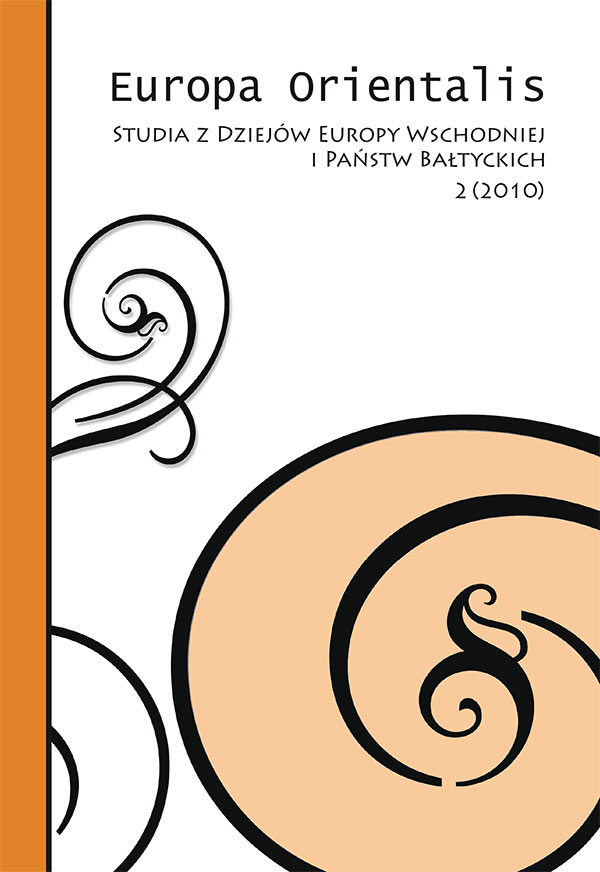Jeszcze w sprawie Wilna w okresie międzywojennym
DOI:
https://doi.org/10.12775/EO.2010.010Abstract
For a long time in the Lithuanian historiography the question of Vilnius was highlighted as a local problem of Lithuanian-Polish relations. In the historiography of the Second Republic of Lithuania this problem acquired a broader context. The events of 1919–1920 gave the problem of Vilnius an international status during the period between the world wars. After the League of Nations intervened, the question became not only European but also problem of world scale. Traditionally, in the Lithuanian historiography the question of Vilnius included chronological frame between October 8, 1920, when the treaty of Suwalki was breached, and March 19, 1938, when the Polish ultimatum was accepted. For the long time this period was treated by historians as monolithic. However, during that period despite the constant confrontation one can also see some brighter moments. There were more of these moments in the beginning of the 1930’s when it became clear that the question of Vilnius lost its importance in the international community. The period between June 12, 1934, when S. Lozoraitis became the foreign minister of Lithuania and July 1936, when his second meeting with his Polish counterpart failed, can be called the period of a thaw possibility in the relationships between Kaunas and Warsaw. In an attempt to analyze the problem more objectively, it was necessary to look for a new point of reference. It was found in the document signed by A. Smetona and K. Bizauskas on August 22, 1939, which quite unexpectedly revealed some new aspects of Lithuanian nationalist foreign policy. In this document the president of Lithuania appoints the advisor of Lithuanian Mission in Poland Antanas Trimakas to the post of a general consul in Vilnius with the area of jurisdiction including the voivodship of Vilnius and Bialystok. It is possible to state with reference to the norms of international law that by this act A. Smetona recognized Vilnius and Vilnius region as part of Poland. Therefore we should expand the chronological frame of Vilnius question from October 8, 1920 until August 22, 1939.
Downloads
Veröffentlicht
Zitationsvorschlag
Ausgabe
Rubrik
Stats
Number of views and downloads: 729
Number of citations: 0



